RACE FOR GLORY: AUDI vs. LANCIA (2024)
Inspired by true events that occurred during the fierce rivalry between Germany (Audi) and Italy (Lancia) at the 1983 Rally World Championships.
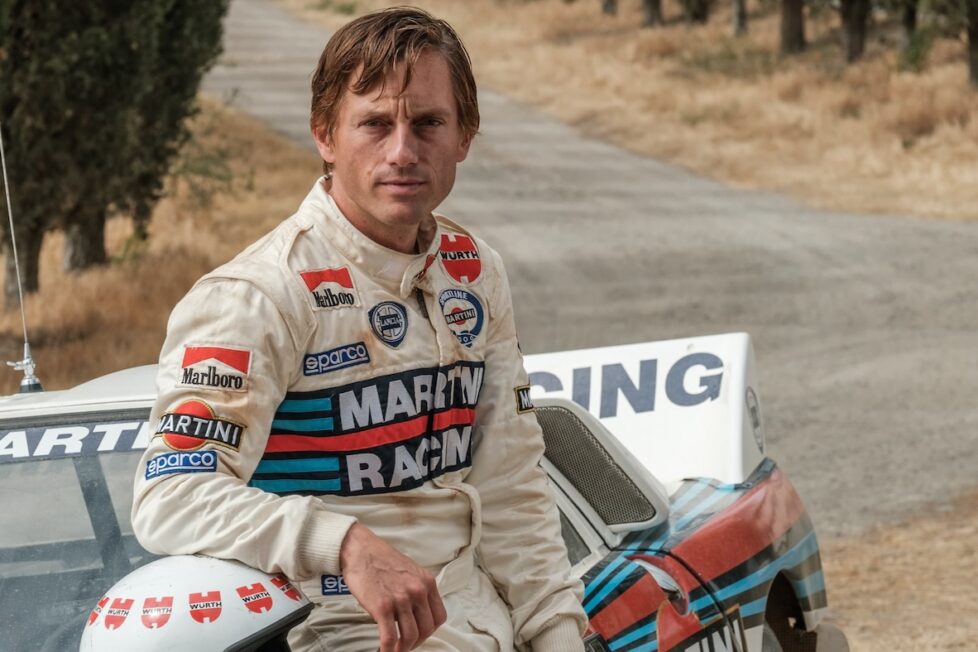
Inspired by true events that occurred during the fierce rivalry between Germany (Audi) and Italy (Lancia) at the 1983 Rally World Championships.


The opening shot of Race for Glory: Audi vs. Lancia isn’t a car roaring through the mud or drivers exchanging heated words. Instead, text explains the origin of rally car racing. Unlike Formula 1 vehicles, rally cars resemble everyday cars for the average consumer. This resemblance is deliberate: rally racing aims to promote sales by showcasing winning cars that spectators can imagine driving themselves. The thrill of victory, combined with the familiarity of the winning machine, fuels consumer desire to possess a piece of racetrack glory.
This film offered a fleeting chance for self-awareness, marking itself as the first and last standout in an increasingly saturated category of car movies. Cinemas have been flooded with titles like Lamborghini: The Man Behind the Legend (2022), Ferrari (2023), and Gran Turismo (2023), none of which have ignited much passion. Even at their best, like Ford vs. Ferrari / Le Mans ‘66 (2019), it’s unclear what Hollywood sees in this genre that should keep us coming back for more. Unfortunately, Race for Glory: Audi vs. Lancia doesn’t offer our answer. It feels formulaic, merely pandering to the trend without adding anything new to the conversation.
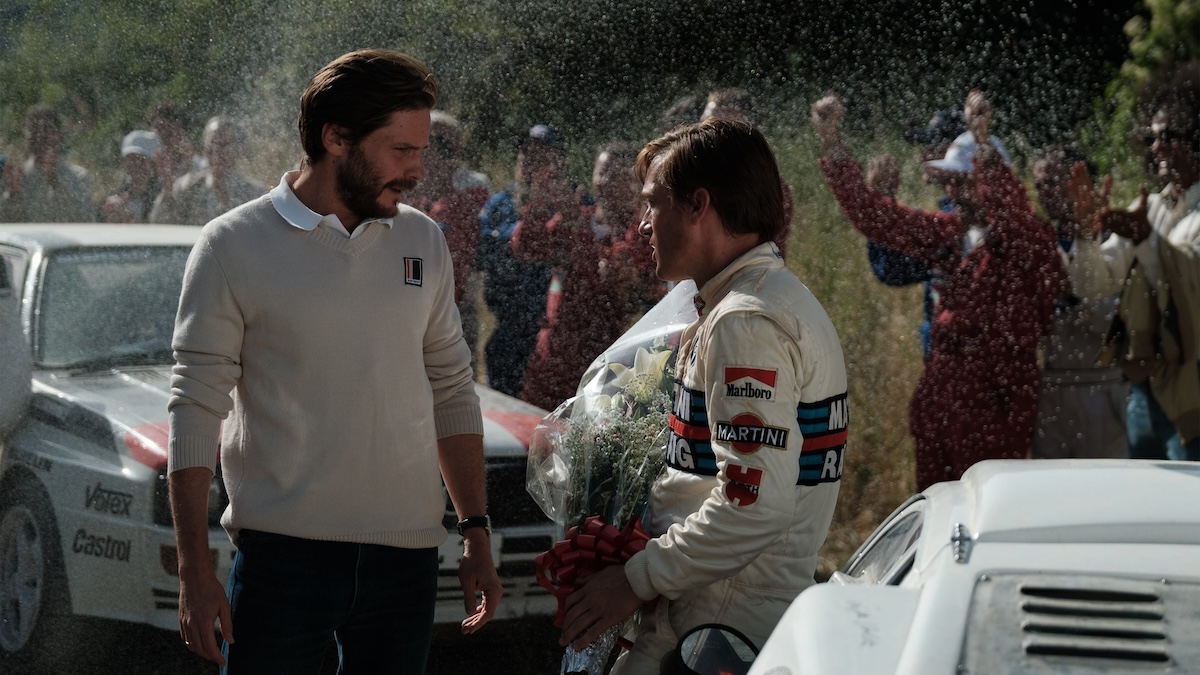
The film follows Fiat Lancia’s headman Cesare Fiori (Riccardo Scamarcio) and his fiery ambitions to beat rival Audi and their determined chief, Roland Gumpert (Daniel Brühl), in the 1983 World Racing Championship. Audi boasts a clearly superior car—championing four-wheel drive, a powerful engine, and a skilled driver. However, Gumpert is far from resigned. When a seemingly satisfied Audi executive observes a “perfect” test run, Gumpert pushes back, insisting it’s “almost perfect” and demands further optimisations. Though details emerge about the car’s excessive weight, it never meaningfully impacts the narrative.
That’s central to what generally roils this film. The problems never seem to manifest. Neither the character study of Fiori nor racing drama follow gratifying plots.
Lancia understands the challenge they face in Audi. They spend their days dissecting Audi cars and reverse-engineering them to steal inspiration. However, even a top driver like Walter Röhl (Volker Bruch) isn’t interested in joining them. He’s convinced they can’t win, hinting that Audi had already demonstrated their superior car. Of course, this concern, like other introduced threads, ultimately ends up neglected.
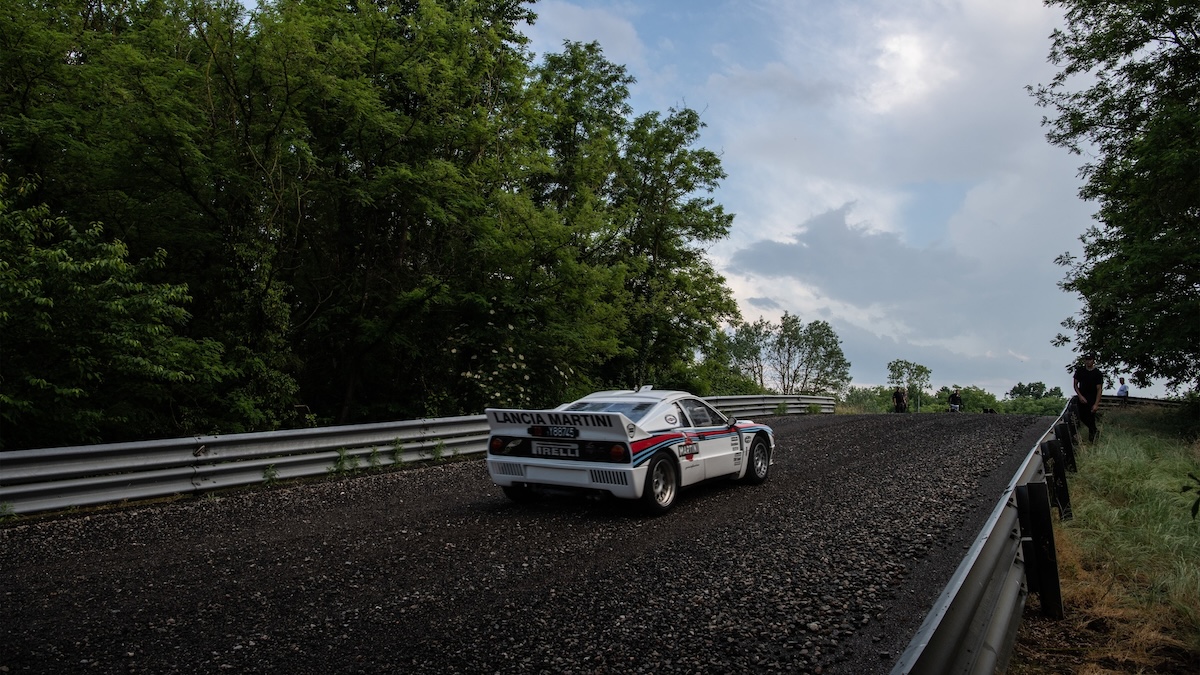
Chief among the list of irrelevant plot lines is Lancia’s lack of four-wheel drive. The car is fragile, overly slick, and clearly optimised for asphalt racetracks, not snowy or dirt-covered fields. The first test drive sends shivers down your spine as a bolt shakes loose, casting doubt on its endurance for a single race, let alone a grueling twelve-race season. While this fragility does create a problem down the line, it ultimately fizzles out with no on-screen resolution or character growth. The tension evaporates, leaving the plot line feeling hollow.
One thing that comes across clearly is the story centred on Riccardo Scamarcio’s Cesare Fiori. Scamarcio produced and co-wrote the film, thus ensuring he has the best lines, dominating the screen with his pronouncements and lingering close-ups, his gaze often drifting forlornly into the distance. There’s an undercurrent of seriousness beneath his exterior, a hint of something deeper simmering below the surface.
While his words may flow freely, their substance often falls short of gravitas. The screenplay drowns in platitudes like “Winning is the best,” “You can’t lose well,” and “Death is afraid of those who pursue it.” The trailer hinted at this shallowness. When asked, “Does anything frighten you?” Fiori simply replies, “Yeah. One thing. Losing.”
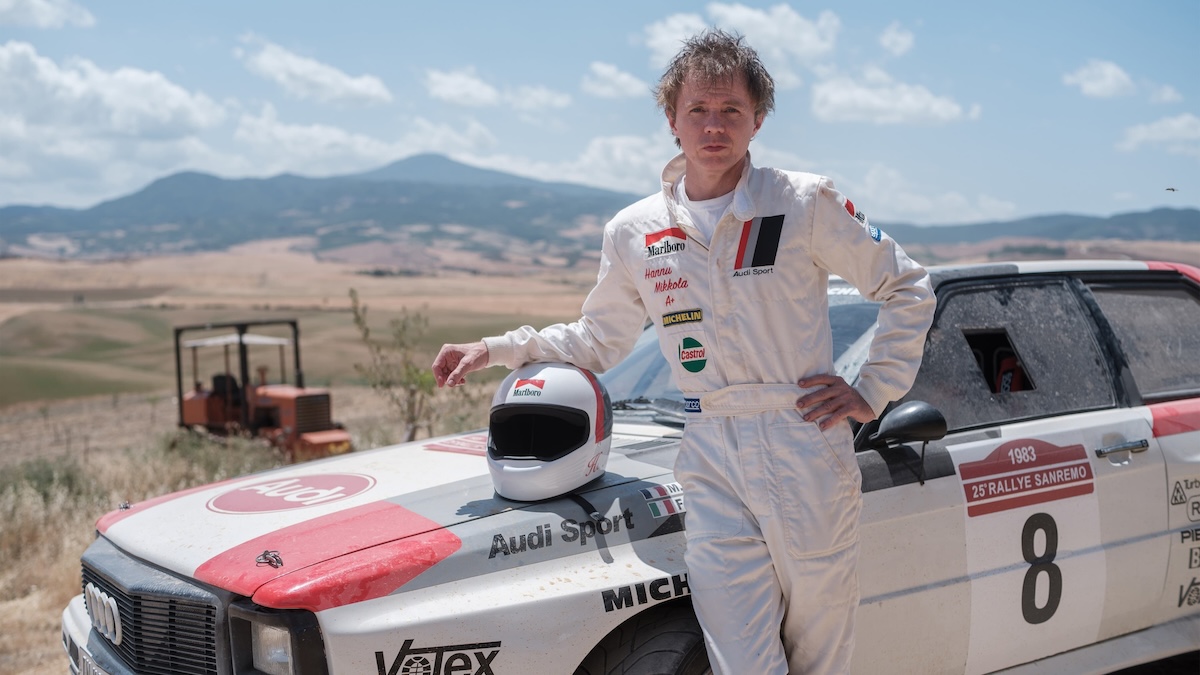
The larger moments of this movie are consistently interested in the sound of a phrase, the heftiness of what the film thinks it is saying. In reality, there’s no moral or thematic centre ground. It’s not clear where the heart of this film is.
While the performances aren’t without flaws, my main frustration lies with the script itself. Sure, the occasional melodramatic side characters, with their emphatic clipboard pointing and handyman’s constant rag-wiping, pull me out of the immersion, but Riccardo Scamarcio does a commendable job breathing life into his underwritten lines. Similarly, Volker Bruch delivers a compelling performance as Walter Röhl, even though the script only hints at his traumas and diva tendencies. And, as always, Daniel Brühl captivates the audience with his nuanced acting.
Halfway through, the film reveals its ambition to explore the complexities of obsession—its value and its cost to relationships. In brief glimpses, we see the problems Gumpert’s racing obsession creates in his personal life. This could be a fascinating avenue to explore, using Gumpert as a foil to Fiori, perhaps allowing Fiori to see the positive side of his obsession and learn to manage it productively. Unfortunately, Brühl’s limited screen time leaves this potential unrealised.
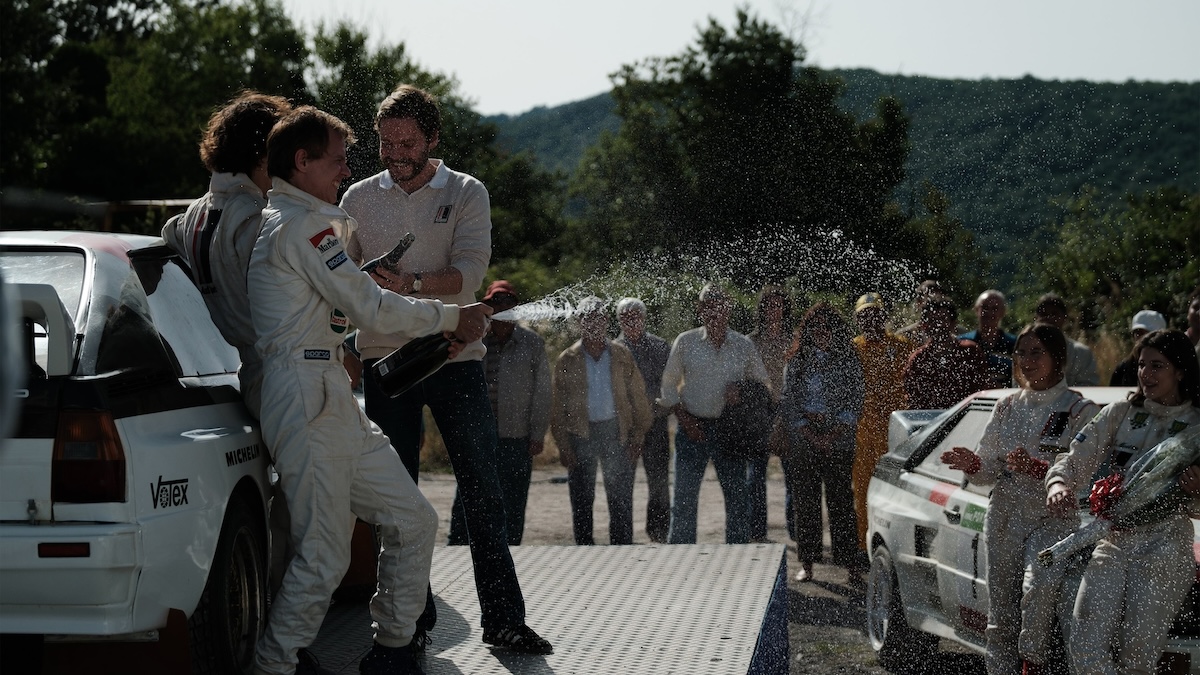
Obsession and the hunger for victory grip the film’s other characters. Walter, the driver, clashes with Fiori for not being obsessed enough. An interviewer questions Fiori about his fervent desire to win. Jane McCoy (Katie Clarkson-Hill), a nutritionist haunted by the death of her father in a crash, initially resists joining the Lancia team. But the allure of winning overpowers her moral hang-ups and she relents.
The film’s lack of emotional depth raises the question of why it prioritises Fiori’s perspective over the driving and racing itself, leading to a focus on him rather than the exciting core of the story. If the idea was to explore Fiori’s relentless ambition, why don’t we see more dynamic interplay between him and his rival? Why don’t the other characters build on or inform Fiori’s struggles? We need more and better ways to access Fiori’s interior—his platitudes and longing looks into the distance do not hit the mark.
Amidst the film’s stumbles, there are clever scenes like the one with French inspectors before the Monaco Grand Prix. A bees and honey sequence even leads to a genuinely tense car race. These moments prove the filmmakers’ knack for effective dramatic contrivances. It’s puzzling, then, why they devoted so much of the runtime to other, less compelling content.
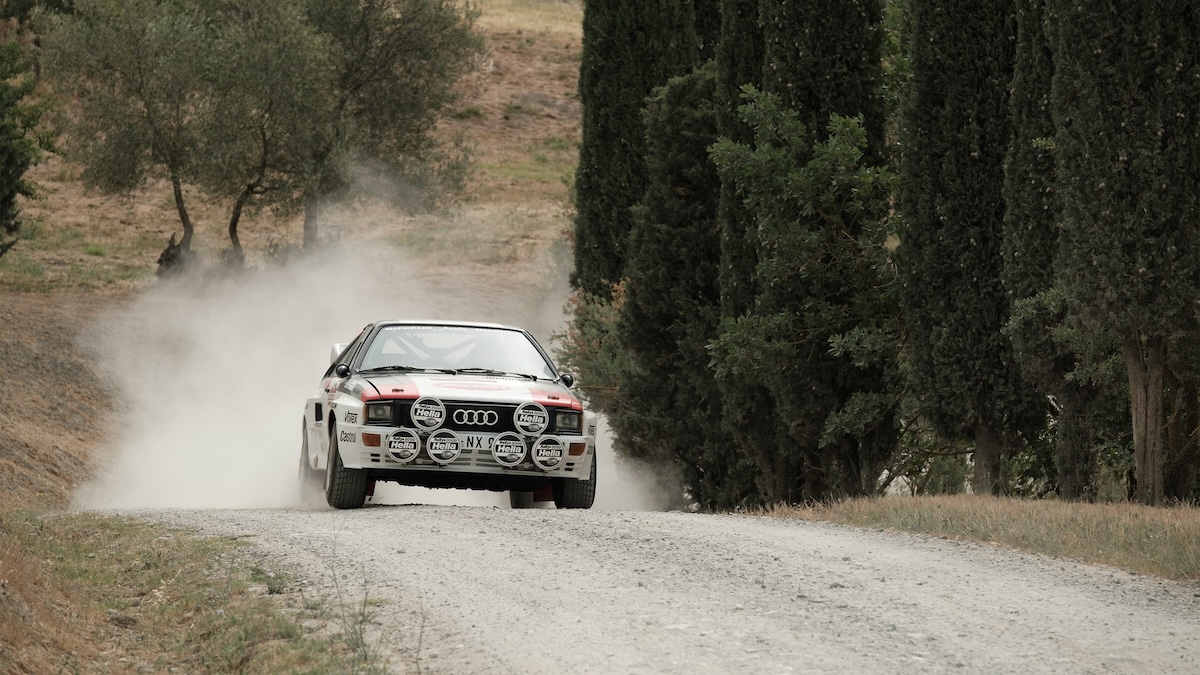
Visually, the film comes alive during its car chases. The race landscapes unfurl like breathtaking vistas, as they do in real life. The meticulous location scouting deserves major kudos. However, the shots themselves are devoid of a lasting impression. They feel derivative, like echoes of countless car chase movies we’ve already seen. There’s a distinct absence of the director’s voice, leaving the film feeling bland and uninspired.
Elements of the movie shine with technical skill, but falter in conviction. It merely goes through the motions, no more, and occasionally less. The underdogs assemble a ragtag team of misfits, each desperate to prove their worth, but none had much to say by way of growth. Each race is marred by unforeseen disasters, yet their makeshift solutions fizzled out long before reaching a truly thrilling crescendo.
Rally car racing is quite different from Formula 1. In rally, cars don’t compete against each other; they compete against the clock. As Fiori corrects a reporter, it’s not a race against others, but against yourself. You beat yourself; you only lose to yourself. The reporter then asks if Fiori is worried he’s someone who’s going to quit because he has lost against himself.
It’s a poignant question. One the movie could have asked of itself. Did it make the right choices, did it live up to its promises?
ITALY • UK • IRELAND | 2024 | 93 MINUTES | 2.39:1 | COLOUR | ITALIAN • GERMAN • ENGLISH

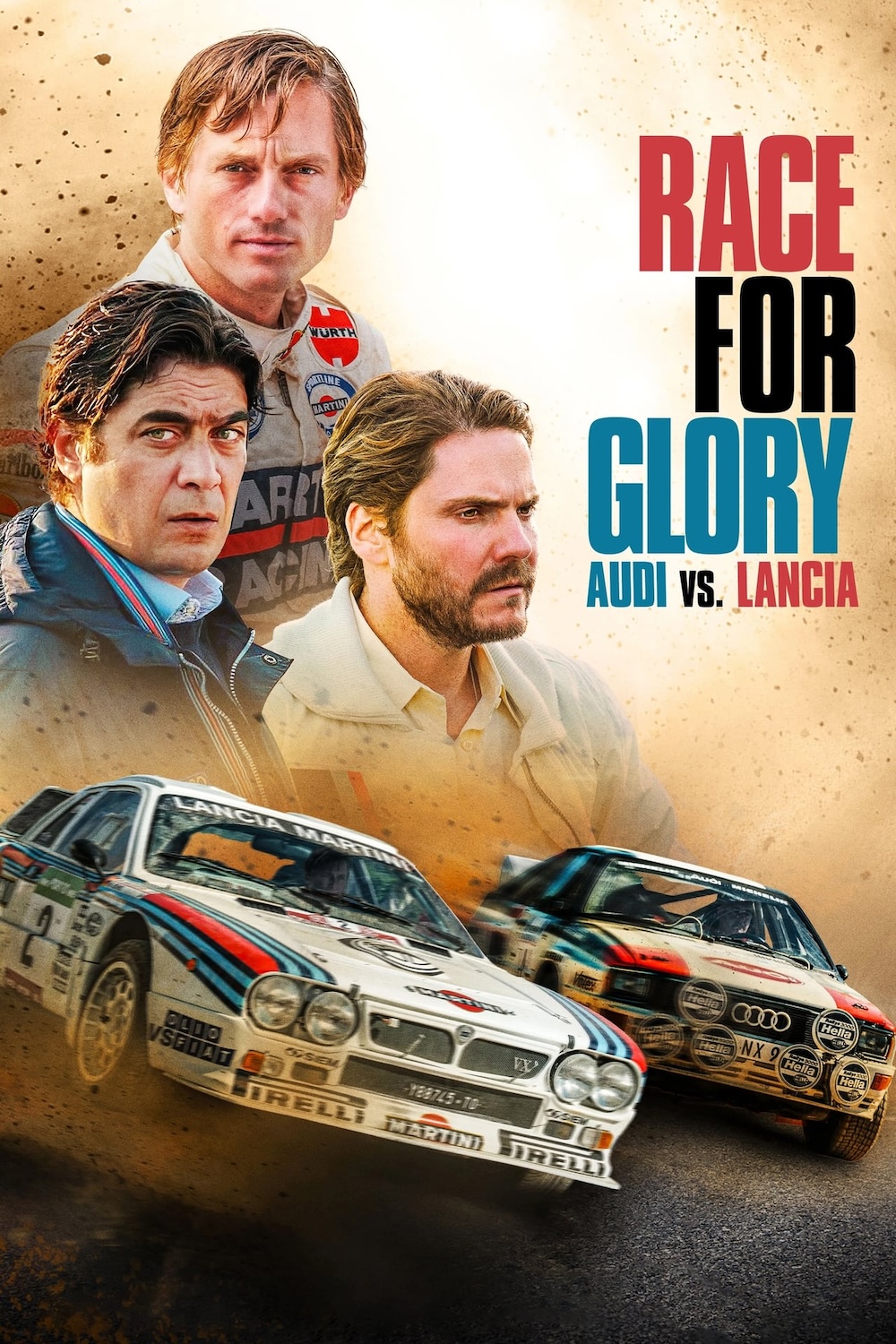
director: Stefano Mordini
writers: Riccardo Scamarcio, Stefano Mordini & Filippo Bologna
starring: Riccardo Scamarcio, Volker Bruch, Daniel Brühl, Haley Bennett & Katie Clarkson-Hill.
